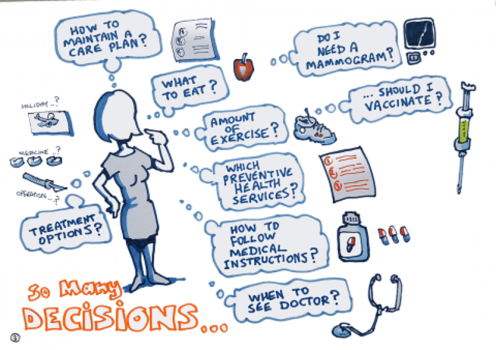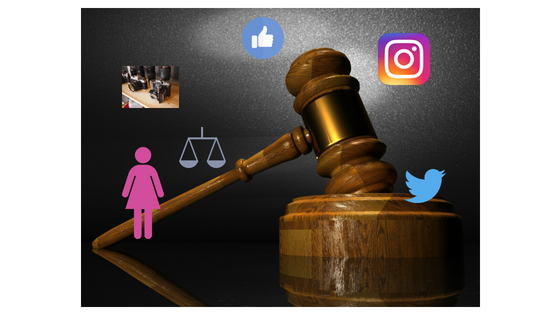Currently there is much debate around the implementation of the government’s My Health Record. This debate has centered around the decision to make people opt out of the system as opposed to opt in, the government’s ability to keep our health information secure, the lack of trust around how the government will use this data and legislation that needs to be changed.

An admission to hospital or a visit to a Doctor requires a person to recall their medical history, this means people are asked about diseases they know nothing about, recall the names of tests and scans that they don’t understand and results that mean nothing to them. This causes problems for medical staff and can result in a delay in diagnosis and people having unnecessary tests and scans, which can be uncomfortable for them and costly for the system.
Health Data
The discourse around capturing medical data has been occurring since the introduction of Medicare in 1975. Despite there being rapid growth in technology and nearly every adult having some online footprint there has been very little progress towards comprehensive health records where your health information is available for you to access when you want it.
Currently data from different health care providers is stored differently and not in one place. There is no consistent approach to how your health records are recorded or managed. It is not uncommon for medical practices to use a paper based system to manage your health records. These records are also stored in isolation and generally not shared between health professionals.
The Australian Digital Health Agency, launched the National Digital Health Strategy in July 2018. The strategy has 7 priority areas that focus on developing a coordinated digital ecosystem for capturing health data. The implementation of universal My Health Record’s is one priority outlined in this framework.
Official launch of Australia’s National Digital Health Strategy – Safe, Seamless, and Secure: evolving health and care to meet the needs of modern Australia (2018).
Much of the data to be collected in a My Health Record is already being collected and stored in a database somewhere ie Medicare, PBS, private health provider, GP etc. Despite this, and assurances from the government around data security, hysteria is being created. A My Health Record is pretty much just bringing all your health data together. The information your record contains will be collected prospectively and will include key summary pieces of information.
Real Scenarios
A My Health Record is a health diary that can capture a person’s health information from the time they are born to the time they die. This is a much-needed health initiative that has the potential to not only empower health consumers but improve health outcomes.
According to the US Department of Health and Human Services patients forget between 40-80% of the information they are given during a medical appointment and of the information they do retain 50% of it is incorrect. No-one retains all the information they receive during a medical consultation. Picture from Closure-plan-for-newcastle-s-scotswood-surgery-sparks-outrage (2014)
Picture from Closure-plan-for-newcastle-s-scotswood-surgery-sparks-outrage (2014)
Added to this is, only about 40% of adults have the level of health literacy they need to make well-informed decisions about their health. Low levels of health literacy are linked with poorer outcomes and can prevent a person from sharing personal information, such as health history, with health professionals. Health literacy also affects a person’s ability to manage a chronic disease.
Chronic disease is a big burden on the health system. According to the Australian Institute of Health & Welfare (AIHW), in 2014/2015, 50% of Australians had one chronic disease, patient recall and understanding is essential with the management of a chronic disease.
The AIHW also reported that in 2014/2015, 39% of hospital admissions were due to a chronic disease. Management of a chronic disease often involves specialists, general practitioners and allied health professionals. Multiple providers can make management difficult for a person to navigate and understand.
Currently you don’t own your own health information. The information your GP collects is owned by the GP. If you change your GP there is no requirement for them to share this information, the same goes for your specialist, your physio etc. Your health information is currently not routinely shared between health care providers or the health systems in different states and territories. Your data is also not available for you to access.
A My Health Record provides an opportunity for health consumers to manage their health information. People can receive information to help manage a chronic disease electronically. They can read their health information multiple times in their own home and share it with family or friends who can help with the management of a disease.
The opt in approach hasn’t worked as health professionals have been slow to come on board as have health consumers. Test sites did show with education and support GPs were able to increase the rate of people with a My Health Record from 15% to 70%. These results demonstrate a My Health Record is worth investing in.
The government has responded to the communities demands to extend the Opt-out period and to provide more information to the public about this initiative. It could be argued the government should have been more proactive in the implementation of a public education campaign to reduce the communities anxiety around data collection. This probably only added to the distrust the public had regarding the sharing and use of the health data.
Currently there are over 6 000 000 My Health Records none of which have been hacked. A My Health Record is a much-needed resource where you can access your health information when you want. This could result in a person receiving better care, making better health choices, achieving better health outcomes and more informed health planning decisions being made.
When everybody has a My Health Record data protection is crucial, unfortunately the publics have a lack of trust in how the government is going to manage and store the data and how it will be used. Many people have been misinformed regarding access to the data and critics argued the legislation needed to be changed so police, governments or anyone else could not access it without a court order.
People need to look past the data hysteria (other large organisations hold important data that are not being scrutinised in the same way) and at the real benefits this can have for you as a health consumer.
To understand the risks and benefits the Consumers Health Forum Australia have a diverse range of information available.
To understand the risks and benefits the Consumers Health Forum Australia have a diverse range of information.
It was recently announced by the Federal Minister for Health, Mr Greg Hunt legislation would be amended to ensure records could not be released to the police or government without a court order. As we move forward the legislative changes, a public education campaign and an extension of the Opt-out period will hopefully remove some of the hysteria that has been created.

FIGURE 1: HTTP://COMPARE-PHC.UNSW.EDU.AU/CONTENT/COMPARE-PHC-HEALTH-LITERACY-SYMPOSIUM-2016
Your My Health Record provides you with the opportunity to be an active participant in your health care. These records are being held with military type security and legislation is being introduced to ensure data can’t be accessed by commercial enterprises for things such as Insurance checks. Don’t let the hysteria scare you off!
Reference List
Australian Commission on Safety and Quality of Health Care: Health literacy: Taking action to improve safety and quality, retrieved 23rd July 2018 <http://www.safetyandquality.gov.au/our-work/patient-and-consumer-centred-care/health-literacy/>
Australian Digital Health Agency (2018) National Digital Health Strategy – Safe, Seamless, and Secure: evolving health and care to meet the needs of modern Australia Official Launch, You Tube Video, retreived 14th August 2018, <https://www.youtube.com/watch?v=r1OZgcqIAxw>.
Australian Digital Health Agency (2018) National Digital Health Strategy, retrieved 14th August 2018, <https://conversation.digitalhealth.gov.au/australias-national-digital-health-strategy>.
Australian Institute of Health and Welfare 2018, Chronic disease, Australian Government, retrieved 23rd July 2018, <https://www.aihw.gov.au/reports-statistics/health-conditions-disability-deaths/chronic-disease/overview>
Closure-plan-for-newcastle-s-scotswood-surgery-sparks-outrage (2014), retrieved 12th August 2018, <https://goo.gl/images/kfChAE>.
COMPARE – PHC Health Literacy Symposium (2016) Health Literacy for Preventative Care in Primary Health Care Settings, retrieved 23rd July 2018, < http://compare-phc.unsw.edu.au/content/compare-phc-health-literacy-symposium-2016
Kessles R P C (2003) “Patients memory for medical information” retrieved 23rd July 2018, <https://www.ncbi.nlm.nih.gov/pmc/articles/PMC539473/
Seymour J, retreived 17th August 2018, <https://goo.gl/images/GA2LqE>



You must be logged in to post a comment.